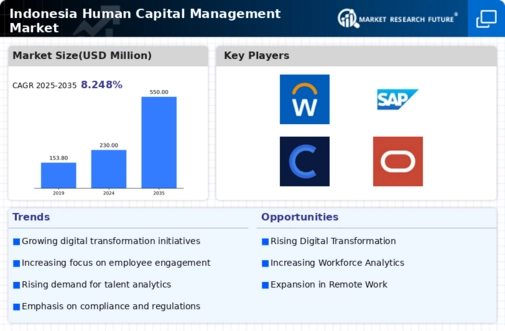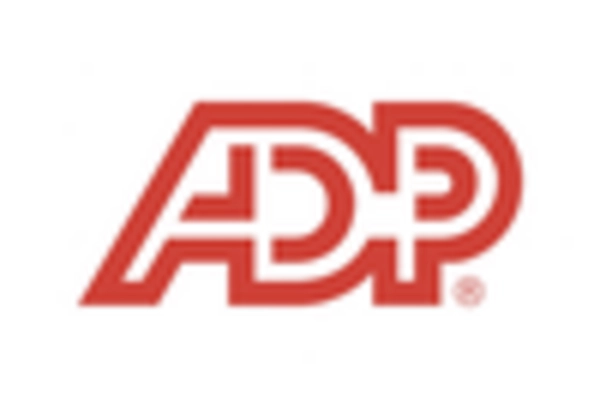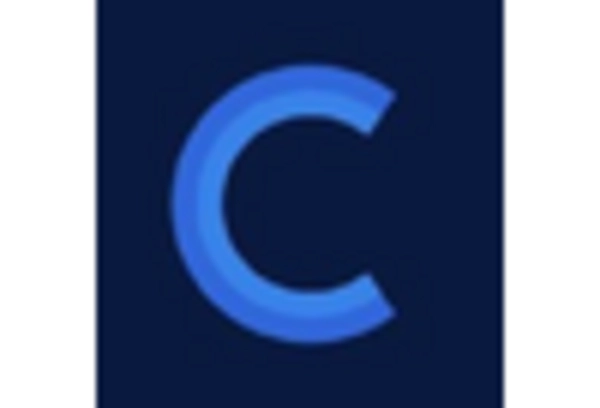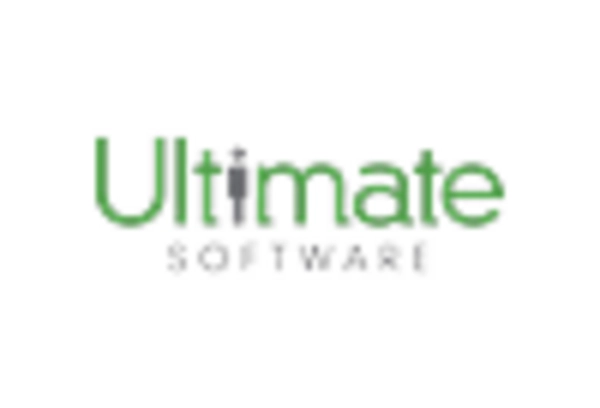Shift Towards Remote Work Models
The human capital-management market in Indonesia is witnessing a shift towards remote work arrangements, driven by technological advancements and changing employee preferences. This transition has prompted organizations to adopt flexible work policies and invest in digital tools that facilitate remote collaboration. As of November 2025, approximately 30% of the workforce is engaged in remote work, indicating a significant transformation in workplace dynamics. This trend necessitates the development of robust human capital-management strategies that address the unique challenges of managing a dispersed workforce, thereby influencing market growth and innovation.
Regulatory Changes and Compliance
In Indonesia, the human capital-management market is significantly influenced by evolving labor laws and regulations. Recent legislative changes aimed at improving employee rights and workplace conditions have prompted organizations to reassess their human resource strategies. Compliance with these regulations is not only a legal obligation but also a means to foster a positive corporate image. As a result, companies are investing in human capital-management solutions that ensure adherence to labor laws, which is expected to drive market growth. The market is projected to expand by 12% annually as businesses prioritize compliance and employee satisfaction.
Rising Demand for Skilled Workforce
The human capital-management market in Indonesia is experiencing a notable surge in demand for skilled labor. As industries evolve and technology advances, companies are increasingly seeking employees with specialized skills. This trend is reflected in the growing investment in training and development programs, which are projected to reach approximately $1.5 billion by 2026. Organizations are recognizing that a well-trained workforce is essential for maintaining competitiveness in a rapidly changing economic landscape. Consequently, the human capital-management market is adapting to facilitate the recruitment and retention of skilled professionals, thereby enhancing overall productivity and innovation within various sectors.
Increased Focus on Diversity and Inclusion
The human capital-management market in Indonesia is increasingly prioritizing diversity and inclusion initiatives. Organizations are recognizing the value of diverse teams in driving innovation and improving decision-making processes. As a result, companies are implementing policies aimed at fostering an inclusive workplace culture. This shift is supported by research indicating that diverse teams can enhance performance by up to 35%. Consequently, the human capital-management market is evolving to provide tools and resources that assist organizations in achieving their diversity and inclusion goals, thereby contributing to a more equitable work environment.
Technological Advancements in HR Solutions
Technological innovation is a key driver of the human capital-management market in Indonesia. The integration of advanced HR technologies, such as artificial intelligence and data analytics, is transforming traditional human resource practices. These technologies enable organizations to streamline recruitment processes, enhance employee engagement, and improve performance management. As of November 2025, the market for HR technology solutions is projected to grow by 15% annually, reflecting the increasing reliance on technology to optimize human capital management. This trend underscores the importance of adopting innovative solutions to remain competitive in the evolving labor market.
















